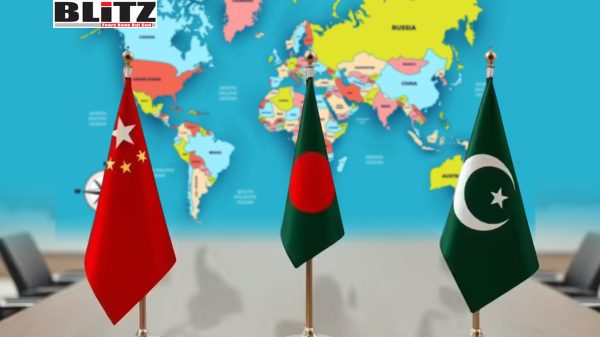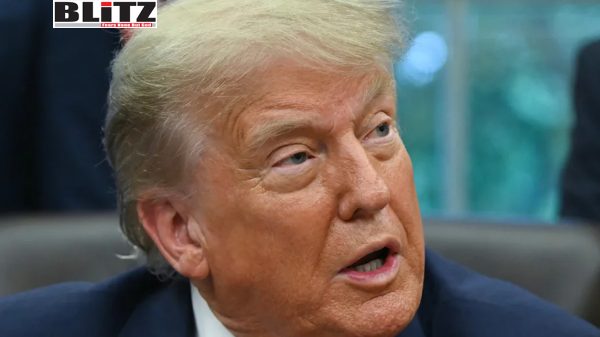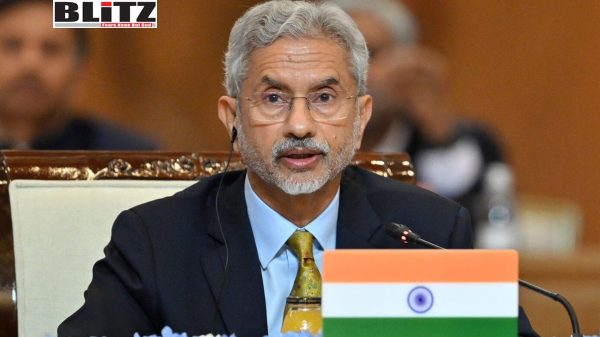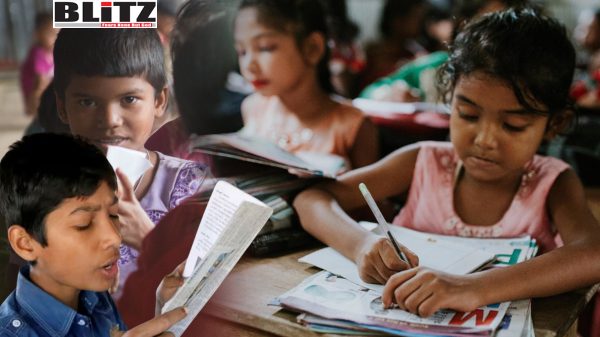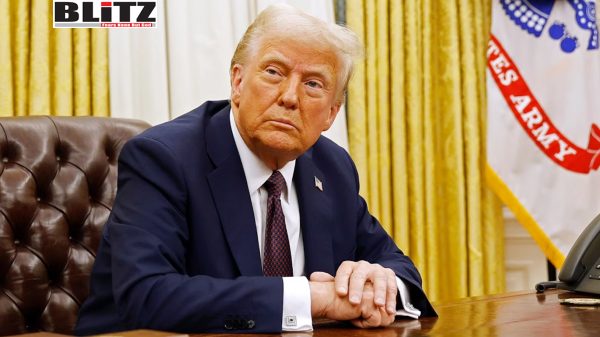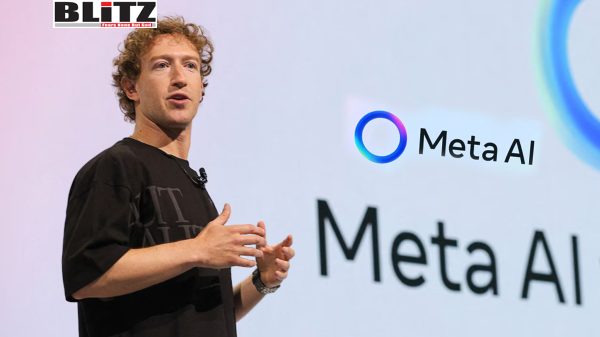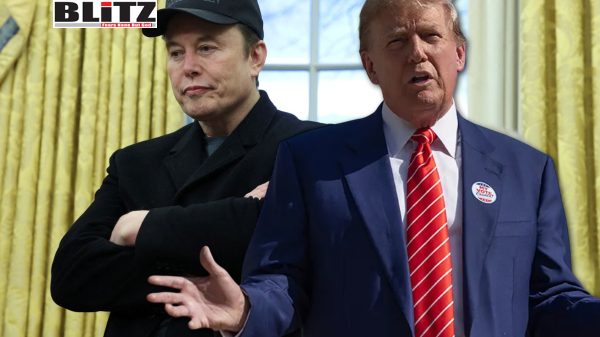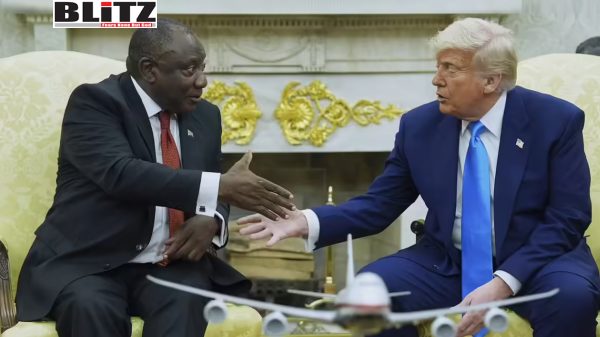Danish investigative journalist Tom Heinemann exposes the vicious circle of microcredit
- Update Time : Tuesday, September 12, 2023
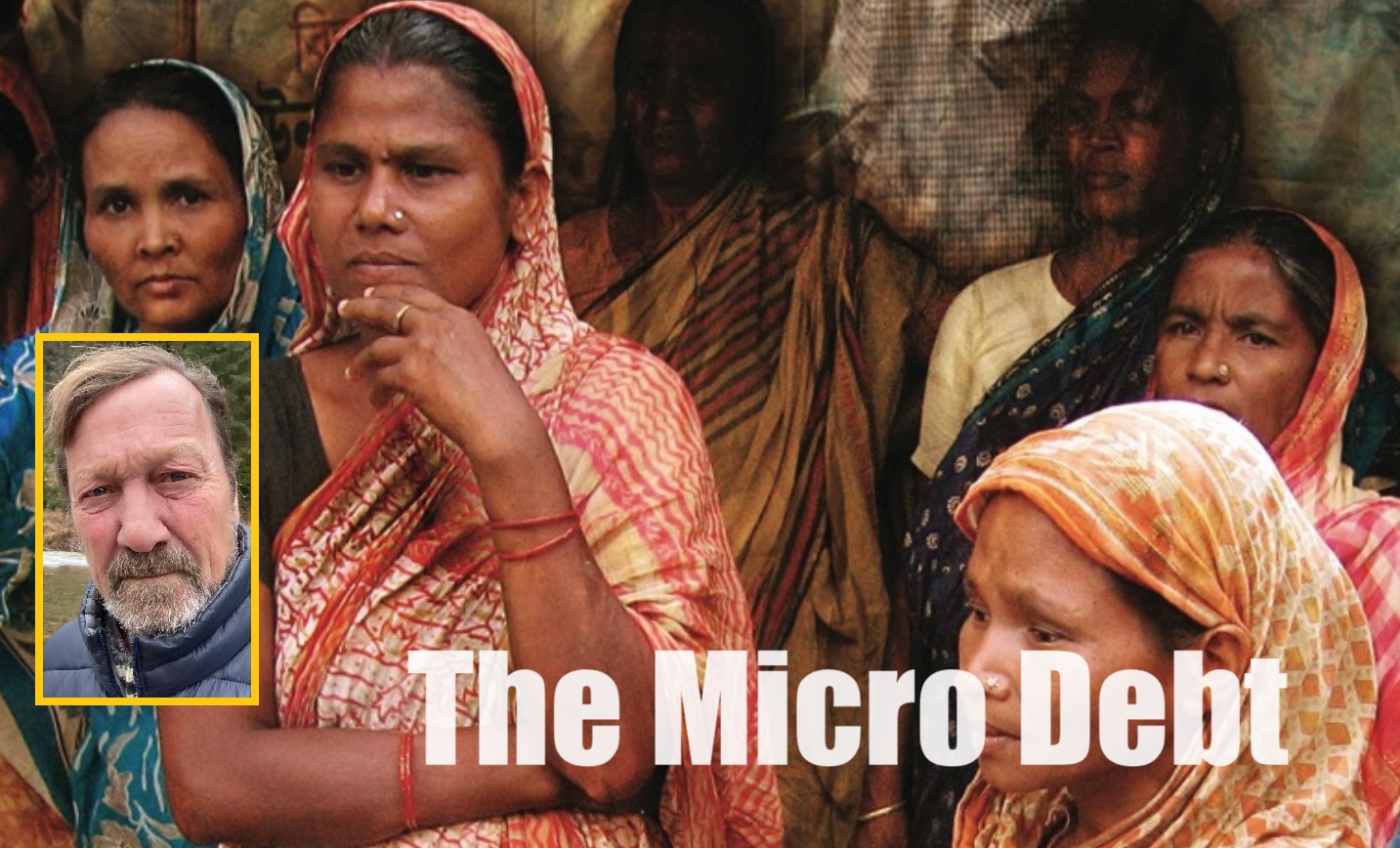
Back in 2010, internationally known multi-award-winning Danish investigative Tom Heinemann rocked the entire world through his investigative documentary titled ‘The Micro Debt’. This documentary has exposed the real face of Muhammad Yunus – a man enjoying global esteem through his lies and deception by claiming to be the savior of poor people. Yunus has been fooling the world by falsely claiming that the first borrower of Grameen Bank – Sufia Begum had achieved economic self-sufficiency and had built a multi-story house at Jobra village in Bangladesh – the birthplace of Grameen Bank. But it was exposed almost simultaneously by Blitz and Tom Heinemann, proving – the building Yunus was claiming to be built by Sufia Begum was actually owned by an expatriate Bangladeshi.
According to Yunus, Tom Heinemann’s documentary was the reason for his exit from Grameen Bank in May 2011.
Recently, Tom Heinemann gave an exclusive interview to Blitz, which already is being published through our YouTube channel. Here is the excerpt from that interview:
Blitz: First of all, please tell us about what inspired you to make the documentary – The Micro Debt?
Tom: It goes back to 2008. I was in Bangladesh, doing a story on the world-famous telecom company Telenor and the Swedish Ericsson. I did a film. They are called ‘A Tower of Promises’, which was about how they manufacture these towers where they put up the antennas for the cell phones and the Telenor as you know is partly owner of Grameenphone. Which is a huge company in Bangladesh. And probably the biggest one. I’m not sure about that, but it was a huge company.
Blitz: And you’re talking about your documentary, which is ‘The Tower of Promises’.
Tom: Yeah, that was actually what inspired me because, always, when I travel far away countries in Southeast Asia. I try to look for other stories relevant to another investigation. So, I talked to various journalists and colleagues in the media business in Bangladesh, had some informal meetings and I asked – what is the big story in Bangladesh right now? And many of them told me that the big story in Bangladesh was microcredit, these small microcredit loans that poor people can get. And then I thought, you know what’s wrong with that, you know, Muhammad Yunus received a Nobel Peace Prize for this and I didn’t know that it was flawed and there were so many faults and errors in this system, that people almost killed themselves to get out of this debt. But I thought I would be searching on that. As soon as I found out that when you have a man standing on the Nobel Peace Prize Committee’s chair and saying with microcredit, in 15 years, “poverty will have to go to museum”, to see what poverty looked like in Bangladesh.
I’ve been to Bangladesh five or six times in my life. You do not remove poverty like handing out loans. Microcredits loans up to an interest rate of between 27 and 31 percent which was calculated by economic professors in Bangladesh for me especially so the average interest rate of these poor people’s loans, most between 27 and 31 percent annually and some of the other microcredits provider were even higher interest rate and the whole thing about microcredit is to believe that poor people can sort of work their way out of poverty by taking loans from the microcredit companies. There’s as you can come into one village, you will meet a lot of ladies because they only give loans to ladies at that time, at least. And because they’re not running away where they can’t pay the interest, they can’t pay the weekly installments. So, the installment officers came in every Tuesday, Wednesday to collect the weekly pay. I mean, I’m a self-employed journalist. If I want to invest in a camera and some equipment, so I can do my filming, I will take a loan in the bank and that’s a long-term loan. Meaning that if I started repaying the camera next week, I would not be able to do that. Why do we think that poor people are able to do that?
So basically, we took some days off when we did the film about the ‘Tower of Promises’ and we went to the countryside because we heard that this was the place where the whole thing happened. We went out to the rural Bangladesh and we just randomly said is that a village? Yes, let’s go there. So, we went to the tea stall and the village and waited for some ladies to pass by. Then I ask them. Kindly madam. Do you have a microloan? “Oh yeah”, they look at me like I was, are you dumb or what? “Yes, I have seven”, some of them said, what do you mean by seven? “Yeah, I have one with this and then to with Grameen Bank”. I asked, why do you have seven loans? They said, “because we have to take a new loan to repay the old one”. So, this is a vicious debt circle that these poor ladies had fallen into and randomly I asked many women in these villages, and this is where I get this quantity of testimonies that brings in investigative quality journalism. We spoke to 30 or 40 women and two or three days and ask them the same questions over and over again. We saw their bankbooks, the installment books, they had on the various microloans and we could copy them.
Now we can see what the actual interest rates are. So, I went back to Denmark and said that this was done for Norwegian National Television because the Nobel Peace Prizes are delivered in Norway. They were very interested in this story, but in the beginning, they didn’t believe it. They said there’s nothing wrong with these. They said, he’s [Muhammad Yunus] saving the whole planet. He received a Nobel Peace Prize for it. Then I said, no, it’s not true and I have many academics who can testify and witness in interviews with me that this is a debt trap for the poor people. And I talked through an esteemed economic professor in Bangladesh, not interviewing him because he didn’t want that, but he told me what Mohammad Yunus succeeded was to connect the poor to the market. This is a neoliberal way of thinking that you can actually make money on the poor.
Blitz: Yeah. we would like to add. Just now you have mentioned that this is not microcredit but it’s a trap. Which is trapping people. And in your documentary about micro debt someone else may think that if someone borrows money from the bank commercial bank, the interest rate could be between 12 and 14 percent. But in the microcredit, it could be between 40 to 125 percent.
But you and we know that Muhammad Yunus was borrowing money, he was getting grants, he was even getting low-interest loans from global lending authorities, Then he was taking the loan claiming that this money is going to help the poor in eliminating poverty and it will improve their lives. But unfortunately, what he was doing was extracting profit and just now you have mentioned that day you met some borrowers who have taken money from multiple microcredit organizations. So, what the world today is trying to say is that microcredit eliminates poverty. If someone would carefully watch your documentary, they would realize – microcredit actually is intensifying, deepening the poverty in every society in the country. Do you agree with us?
Tom: Yes, I agree with you. And I can quote, very esteemed micro finance professor from New York University, Jonathan Morduch. He told me, on camera, the amount that Grameen Bank got from various donors among them both Denmark and Norway. And he [Yunus] received grants, not loans. He received hundred and seventy-five million US dollars. And that money he re-loaned. He made it go out in the market and charge between 27 and 31 percent. That’s good business.
Blitz: Big business.
Tom: Yes, big business.
Blitz: Now, very interestingly you were able to interview Nurun Nahar, the daughter of Sufia Begum. Sufia Begum was the, let’s say, a poster woman of Muhammad Yunus. He was telling the story to the world that he started Grameen Bank with US$29 and he landed money to Sufia Begum and Sufia became wealthy and rich. She constructed a multistoried building but you in your documentary actually have exposed showing that building belongs to someone else. You have even been interviewed the real owner of the building in your documentary. And you have shown the broken hut of Sufia Begum while her daughter Nurun Nahar told you the sufferings they have been facing.
So, don’t you think Tom, this one is a very big forgery of Muhammad Yunus? I mean he was just telling the world a lie that the Grameen Bank loan has helped Sufia Begum in becoming solvent and constructing a building and through this poster woman, Yunus was telling the world that this is the success of Muhammad Yunus and Grameen Bank. But you have debunked, you have exposed the reality to the world that what Yunus was saying is false. So don’t you think it’s a kind of forgery of a person who has been cheating the world?
Tom: You know at that time, there were many people who wanted to listen to everything that Muhammad Yunus said. He was the star child, he could get access to any media in the world telling this story but the poor people, they didn’t have a voice. So, I gave them the voice. I’ve done this in many of my films to give voice to the voiceless. I mean, millions of people who are suffering from these high interest rates. We of course, tried for weeks and weeks and weeks to get an interview of Muhammad Yunus. We tracked him down to a big conference in Valencia in Spain, where he was receiving yet another award. He must have hundreds of awards and we approached him directly with the camera on the shoulder and said, Mister Yunus – I gave him my card he just looked at my business card and turned around and walked away and then I had a long quarrel with his press officers and campaign managers or whatever he is surrounded with nothing happened.
Blitz: Yunus doesn’t need an internationally acclaimed investigative journalist like you. Yunus needs propagandists and PR activists. So that’s why he was afraid of giving an interview to you.
One more thing, we would like to mention that you have done fantastically in your documentary that, Yunus invited Hillary Clinton to Bangladesh and then he named the village – Hillary Model Village. And they were given the dream that this village would become rich and wealthy and happy. But in your documentary, you have exposed how big a mockery it was. I mean Yunus not only has played with the poor people of Bangladesh, he has even played foul with his own friend, Hillary Clinton. I mean, he took her there and people were given this false hope. So, this is something you have exposed fantastically.
Tom: Yunus received the Nobel Peace Prize in 2006. And I know for sure that the Clintons, they tried to nominate him for years before that and also in 2005 but somehow it didn’t work out and then he finally received it in 2006. Now 17 years have passed. And so now if we go back to his speech at the Nobel Peace Prize ceremony, there should be no poverty in Bangladesh for the last two years, because as he said 15 years ago, poverty will be sent to a museum in Bangladesh in 15 years. And after 17 years of his receiving the Nobel Peace Prize, poverty is very much there in Bangladesh.
Blitz: Yeah, as you mentioned, he told the audience while receiving the Nobel Peace Prize that within 15 years there will be no poverty in Bangladesh. But he received the Nobel Peace Prize 17 years ago and we are still seeing that people who borrowed money from his Grameen Bank are suffering. So Yunus has not only deceived the whole world, he has deceived those esteemed members who attended the Nobel Peace Prize ceremony.
And in this case, we would like to ask, don’t you think the Nobel Prize which was enjoying high esteem in the whole world, now it has become a subject of mockery, a fun because everyone is getting a Nobel Peace Prize, even a person like Yunus, who is a liar, who is the cause of suffering to poor people and he got a Nobel Peace Prize. And because of his proven record of lies and extracting high interest from the poor -can we term Yunus a Debt Mafia?
Tom: Well, I don’t use such harsh words like you use like liar and mafia. As it has to be proved beyond reasonable doubt before you use words like that. But one thing I would like to ask you as a journalist, a local base journalist, is to follow up and investigate all the various companies that are owned by Yunus or controlled by Yunus. As you could see in the film, we exposed the he has multiple different companies and there was this dispute where he transferred money from one company to another company and that was causing uproar in at the Norwegian Embassy in Dhaka. Remember in the film, we exposed a lot of a lot of secret documents that has never been brought forward before and this was a huge scandal in knowing because taxpayers money went to save the world and then instead I think it was a hundred million those were transferred to a private company controlled and owned by Muhammad Yunus.
And the Norwegian authorities of course, asked, what is this? Can you directly transfer back there? Hundred million US dollars. And after a lot of back and forth in the documentary. His [Yunus] CEOs and the Grameen Bank and his spokesperson said there is a press agency, they didn’t want to help us or trying to solve this issue. So, we ended up saying where the 30 million US dollars have gone?
Interestingly enough it was also that he is an economist himself, Yunus. He studied at American university. He knows about money and his empire was not only Grameen Bank, it was like some I think it was up to 50 different companies. I can’t remember the exact figures but it was endless, a lot of companies.
Doing what? We don’t know, because Yunus didn’t want to tell us.
But we put it forward. What happened in the aftermath? I don’t know if you’ve seen this but online when you talked about Sufia Begum there was an American so-called independent journalist who traveled in my footprints. He tried to prove that I was wrong. And I lied and I betrayed and I didn’t say my real name to people I talk to. I paid them money to participate. All the things that an investigative journalist does not do. And they posted a lot of YouTube videos about how wrong I was. And then I investigated this American journalist who did this. Her track record was that she had made two documentaries about Muhammad Yunus which was a tribute to Yunus, a hailing and sort of completely non-independent. So well, but that’s counter-attacks that you can always expect when you do big stories like this one. So I wasn’t afraid of anything and my editors in Norway had fact-checked each and every word I said in my film and there were no errors, there was no fault and we were ready to go to court. If they needed that.
Something happened later, on that day. Mohammad Yunus was sacked by his own bank the Norwegian Ministry of Foreign Affairs, a department is called NORAD, they have a monthly magazine coming out in the public and Norway, and there they interviewed Muhammad Yunus after he left Grameen Bank. And they asked why? And what do you think about the film, The Micro Debt? He replied quote and unquote, “it was the film that axed me”, he said. And he was told I think afterward – you should not say that again because that’s not good PR. So, he stopped saying that and instead went to another kind of business, what he calls social business, that’s his big issue right now. It was already starting at that time.
Blitz: As you have mentioned as investigative journalists, we have to investigate. So last year when Muhammad Yunus issued a press release stating that Jennifer Lopez had become the brand ambassador of Grameen America. Blitz published a report about that and we told what Yunus actually is. Following the publication of this report, Jennifer Lopez left Grameen America without any further announcement. So, this is one thing. Another thing is in Bangladesh, there is a perception, wrong-perception, as also in the world, and thanks to Yunus’ efficient capability of handling the public relations, due to which everyone thinks in Bangladesh that Yunus is world-famous. While in the world, people think Yunus is the savior of the poor in Bangladesh.
Why do Bangladeshi people think Yunus is world-famous? Actually, he is world famous because he got the Nobel Peace Prize, and he got many accolades in the world but no one except you, no one even not the so-called mainstream media, they never came to Bangladesh to check what is really happening in Bangladesh. With Grameen Bank you are the first person to expose what is micro credit. You have exposed it at a time, when the whole world was floating in favor of microcredit and Muhammad Yunus.
And we have seen, there is an effort to somehow get your documentary removed from YouTube and some other social media platforms, because people are using your documentary and some other news channels are reusing it. So, I mean, there are some elements who don’t want it to be coming up in a bigger way. Your documentary, The Micro Debt deserves to be on the bigger news platform in the United States and UK and everywhere in the world.
Tom: To expand that story we also went to other countries to investigate how that microcredit business there. For instance, we went to Mexico, where they have a microcredit bank called Compartamos Banco, which is charging a two hundred percent interest rate. And so we not only focused on one Muhammad Yunus but the main focus of the broader picture was to go to Mexico, to go to African countries, to go to India to investigate. We need to investigate all of those microcredit companies. Imagine how much they charge the poor people. So if someone says, when there is some money, we can all get out of poverty. Not Possible!
Editor’s note:
With over 2.2 million customers in Mexico, Compartamos Banco is Latin America’s largest microfinance institution. Its corporate parent, Gentera, has similar operations in Perú and Guatemala (Compartamos Financiera and Compartamos with 693 and 103 thousand customers respectively).
Compartamos Banco traces its origins to 1990 when it was started as an NGO aimed at alleviating poverty by providing loans to women operating small businesses in the model of Muhammad Yunus’ microfinance initiative, Grameen Bank.
By 2007, however, Compartamos Banco had become a profit-driven entity that went public in a highly controversial secondary offering IPO which made eye-popping returns of roughly 100 percent a year compounded over eight years for the selling shareholders and turned its founders – Carlos Labarthe and Carlos Danel – into multimillionaires.
Michael Chu, who now lectures at Harvard Business School, has boasted that the returns realized by ACCION on its investment in Compartamos Banco were superior to those achieved by any private equity project in which he was previously involved as an executive and limited partner at Kohlberg Kravis Roberts & Co.
Compartamos Banco has received scathing criticism from Yunus himself, who characterized the institution as one “raking in money off poor people desperate for cash”, a description also applicable to individuals and organizations involved in loan sharking.
With Compartamos Banco charging customers sky-high interest rates for the benefit of its shareholders, one can only conclude that the institution has made a major contribution towards increasing inequality in Mexico.
Blitz shall be investigating the case of Compartamos Banco and is welcoming expert opinion, insights, scoop, and evidence related to sky-high interest rates of this micro trap organization that is actually deepening the sufferings of people and Mexico, Perú, Guatemala, and other countries.
Nota del editor:
Con más de 2.2 millones de clientes en México, Compartamos Banco es la institución de microfinanzas más grande de América Latina. Su empresa matriz, Gentera, tiene operaciones similares en Perú y Guatemala (Compartamos Financiera y Compartamos, con 693 y 103 mil clientes respectivamente). Compartamos Banco remonta sus orígenes a 1990, cuando comenzó como una ONG con el objetivo de aliviar la pobreza proporcionando préstamos a mujeres que operaban pequeños negocios siguiendo el modelo de la iniciativa de microfinanzas de Muhammad Yunus, el Banco Grameen.
Sin embargo, para 2007, Compartamos Banco se había convertido en una entidad orientada al lucro que se hizo pública en una oferta pública secundaria altamente controvertida, generando impresionantes rendimientos de aproximadamente el 100 por ciento anual compuesto durante ocho años para los accionistas vendedores y convirtió a sus fundadores, Carlos Labarthe y Carlos Danel, en multimillonarios.
Michael Chu, quien ahora imparte clases en la Escuela de Negocios de Harvard, ha presumido que los rendimientos obtenidos por ACCION en su inversión en Compartamos Banco fueron superiores a los logrados en cualquier proyecto de capital privado en el que estuvo previamente involucrado como ejecutivo y socio limitado en Kohlberg Kravis Roberts & Co.
Compartamos Banco ha recibido críticas mordaces por parte del propio Yunus, quien caracterizó a la institución como una que “gana dinero a costa de personas pobres desesperadas por efectivo”, una descripción también aplicable a individuos y organizaciones involucrados en el préstamo usurario.
Dado que Compartamos Banco cobra tasas de interés exorbitantes a los clientes en beneficio de sus accionistas, solo se puede concluir que la institución ha contribuido de manera significativa a aumentar la desigualdad en México.
Blitz investigará el caso de Compartamos Banco y da la bienvenida a opiniones de expertos, perspicacias, primicias y pruebas relacionadas con las altas tasas de interés de esta organización de microfinanzas que en realidad está profundizando el sufrimiento de las personas en México, Perú, Guatemala y otros países.


